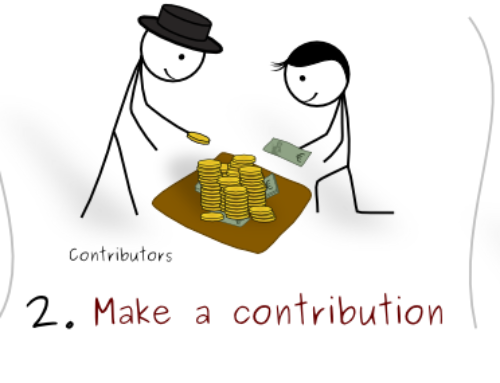Based on the article: Ace the Interview – by David Silverman – Harvard Business Review
Let’s say you followed our advice on resumes and cover letters, or through a combination of skill, perseverance, and luck, you’ve landed the interview. Shortly, you’ll be alone in front of a gauntlet of interviewers with no recourse to the backspace key to fix any verbal gaffes. Now what?
Number one, understand that you are applying for a job someone needs doing and they’re trying to figure out if you’re the person. And to do that, the interviewer will rely on their perceptions and beliefs about interviewing.
For example, I like to know that an employee has a desire to get promoted and move ahead. My reasoning is that an employee who mentions promotion in the interview will work harder on the job.
But other interviewers may have had a bad experience with an employee focusing on advancement to the exclusion of finishing the job they were hired to do. If you’re not sensitive to that manager’s fears, and continue talking about how you’re getting your MBA at night, you won’t get that job.
So with that thought in your pocket — that you need to listen and react to the person in the room with you, not slavishly follow any list of rules — here is the list of rules on how to ace the interview:
1. Dress appropriately. If you’re going to Amalgamated Ginormous Finance, Inc., a business suit is appropriate. If you’re a man, wear a tie. Even in California.
2. Shut up. Did I tell you about the time someone came and told me his life story for 45 minutes and then allowed me 10 minutes to explain the job? I think you know how that story ends.
3. Listen. The most useful skill in sales is listening — and in an interview, you’re selling yourself. If you say, “I think the best computers in the world are PCs and people who use Macs have more style than substance” after the interviewer mentions his iPhone, you could be left with your opinion and no paycheck.
4. Ask questions. You can avoid the problem above by responding to the question, “Do you think we should scrap all the PCs here and buy Macs?” by saying, “That depends on lots of factors. What would your requirements be?”
5. Show interest. This could also be called “sucking up.” When an interviewee doesn’t ask me anything about myself, she’s not just saying “I’ve got pride in my accomplishments and don’t need to pander to you.” She’s also showing me that she isn’t good at showing interest in other people. Which means she’s going to have a hard time politically in the company. And since that’s going to reflect badly on me…no job for her.
6. Do your research. Some people find being Googled creepy. But if you do it carefully, you can show the hiring manager that you took the time to learn something about them. Feel free to quote what they said in CIO Magazine about the challenges of technology in the office. Just don’t mention the size of their swimming pool as viewed through Google Earth.
7. Answer the question you wish they’d asked. How many times have you left an interview thinking, “I never got a chance to tell them about my Nobel Prize in possum research?” Don’t wait for the question. Answer “What did you do at your last job?” with “Actually, it was my work on possums two jobs ago that you might find most relevant.” (Well, maybe for you it wasn’t specifically a Nobel or about possums, but you get the idea.)
- What about you?
- Any horror stories of interviews gone wrong as either the interviewee or interviewer?
- Any thoughts on how to stand the best chance of success in an interview?
Preparing For The Job Interview
This content was adapted for inclusion in the HBR Guide to Getting a Job. Harvard Business Review
DAVID SILVERMAN
David Silverman has had ten careers so far, including entrepreneur, executive, and business writing professor. He is the author of Typo: The Last American Typesetter or How I Made and Lost 4 Million Dollars





